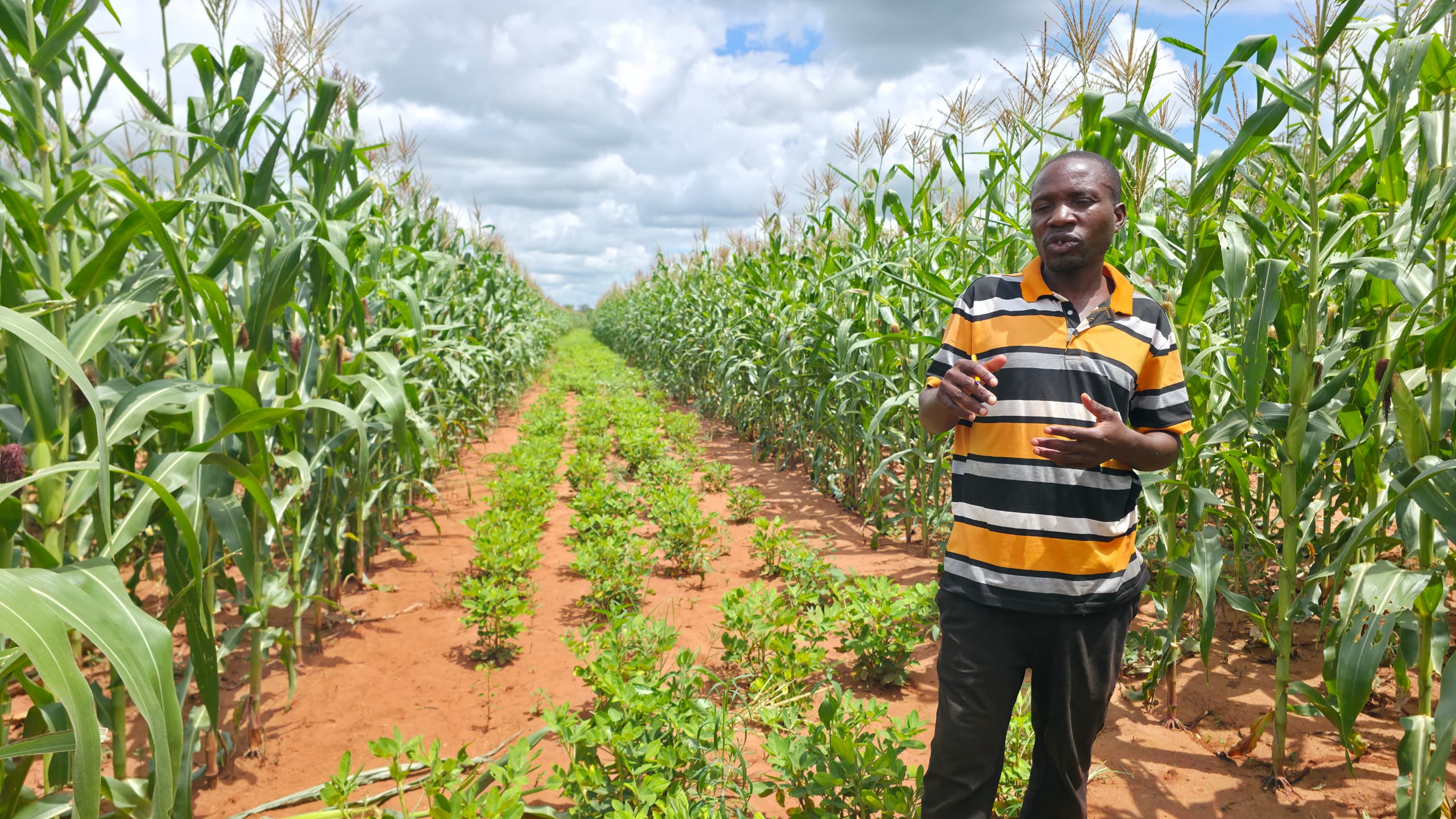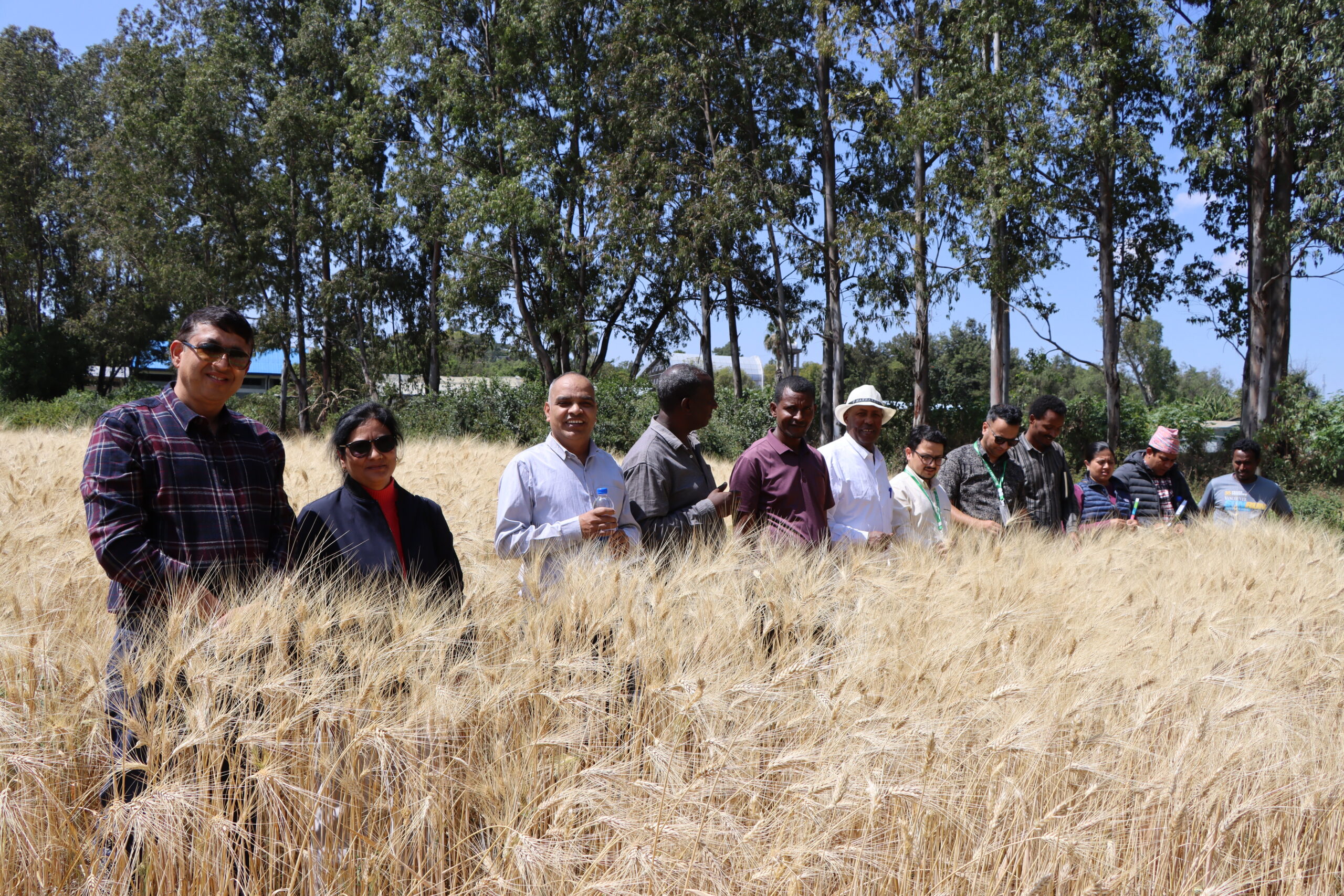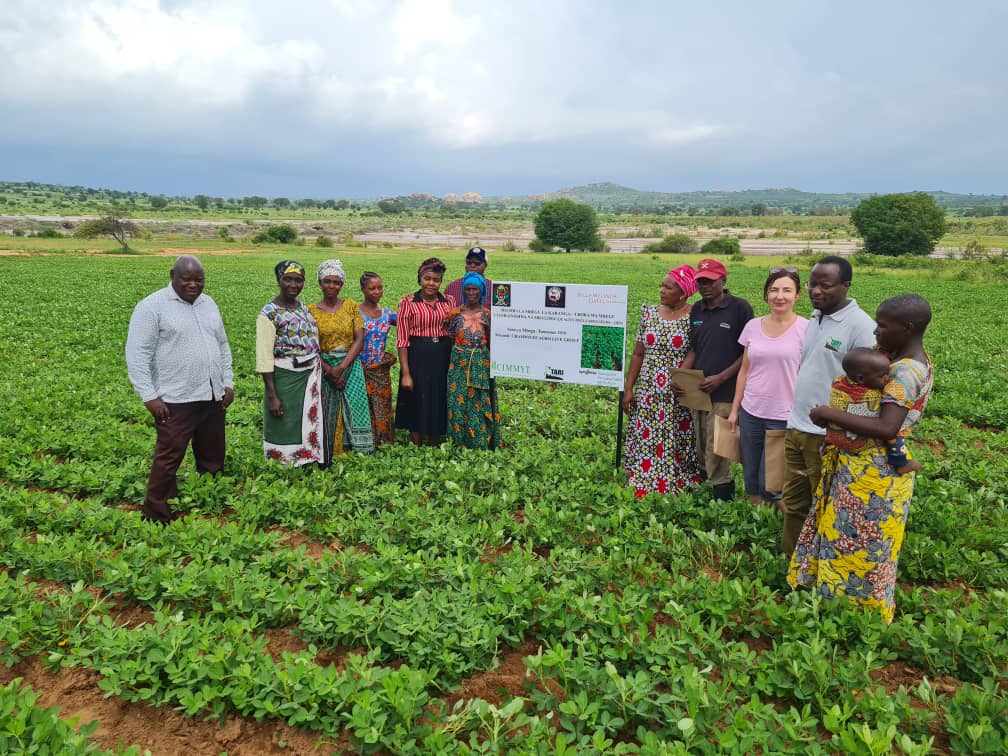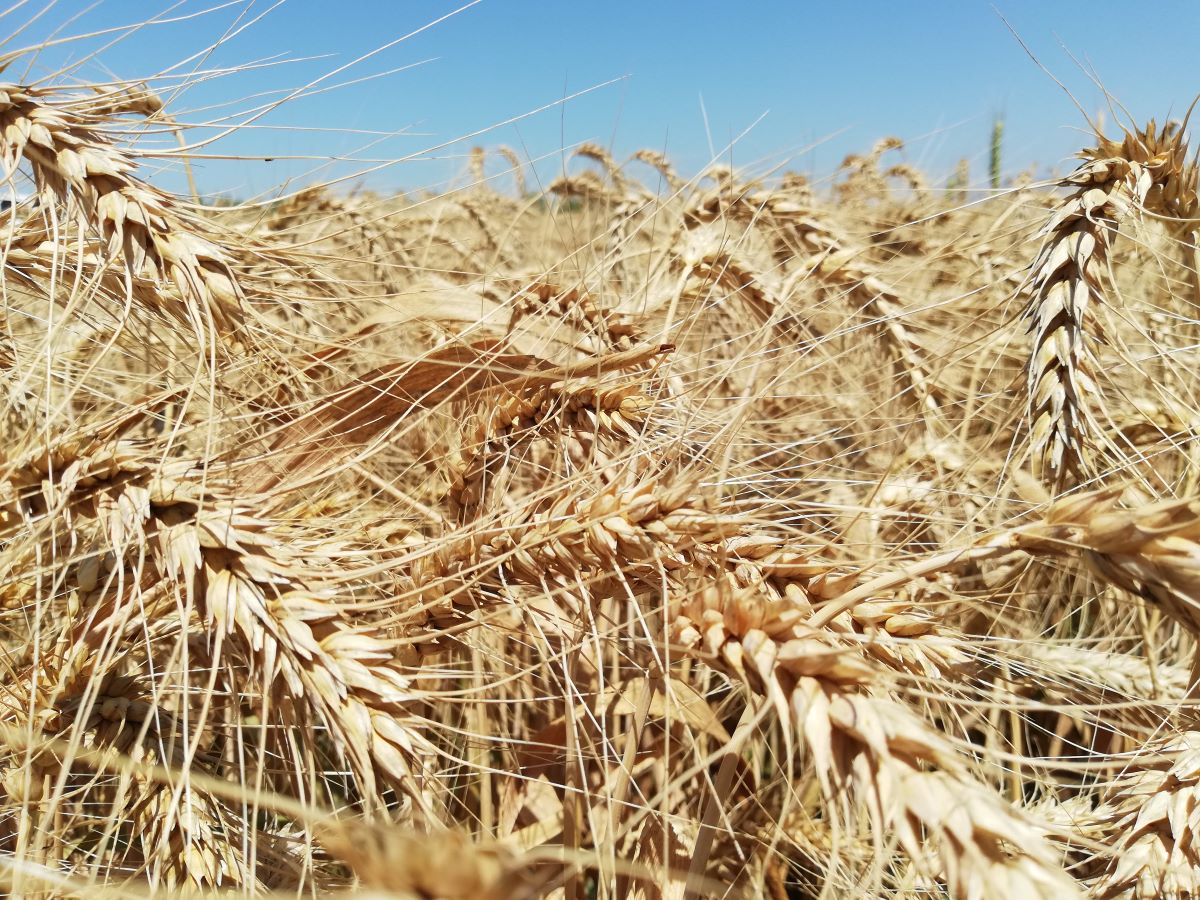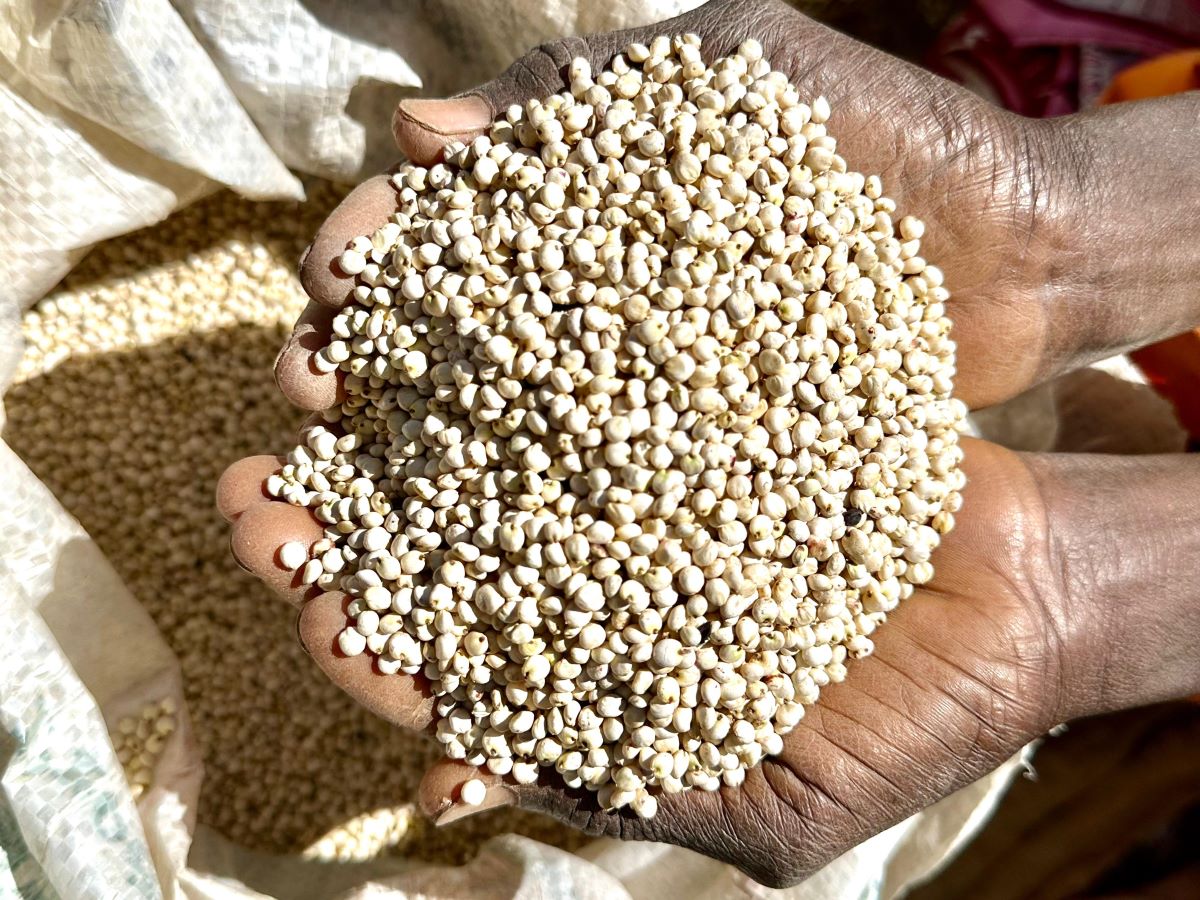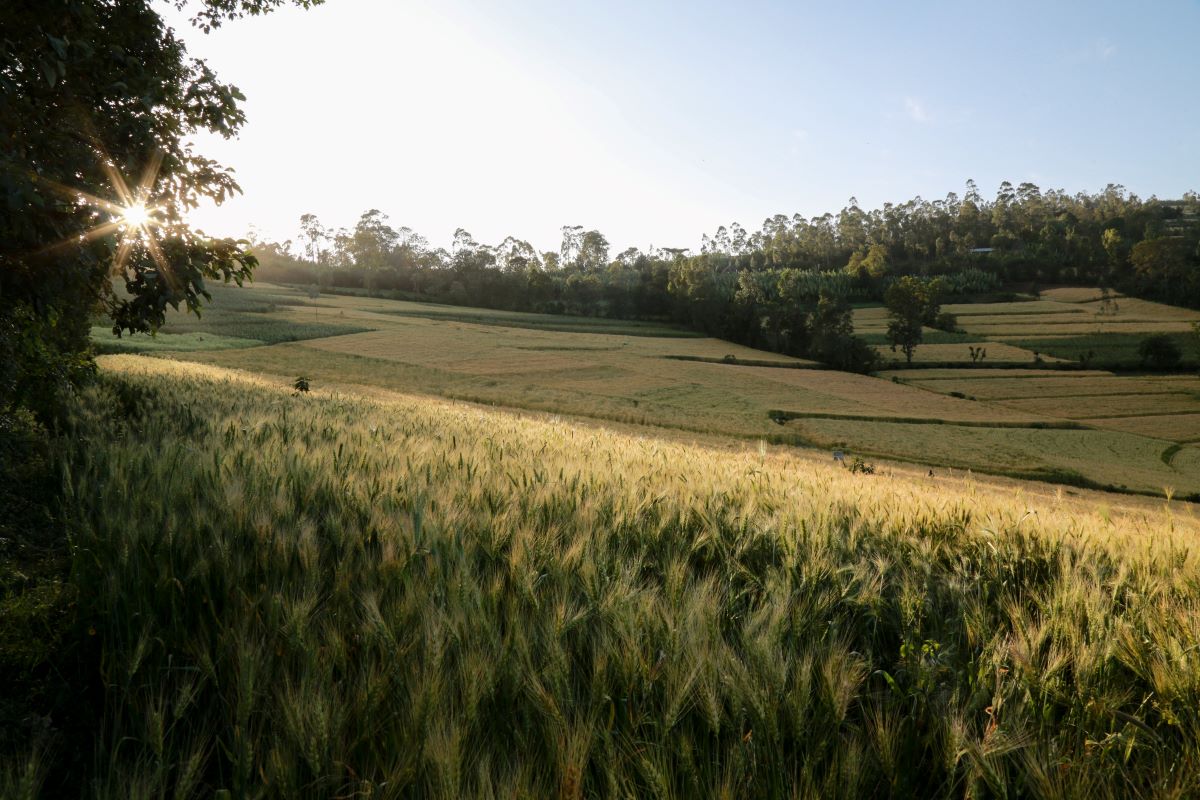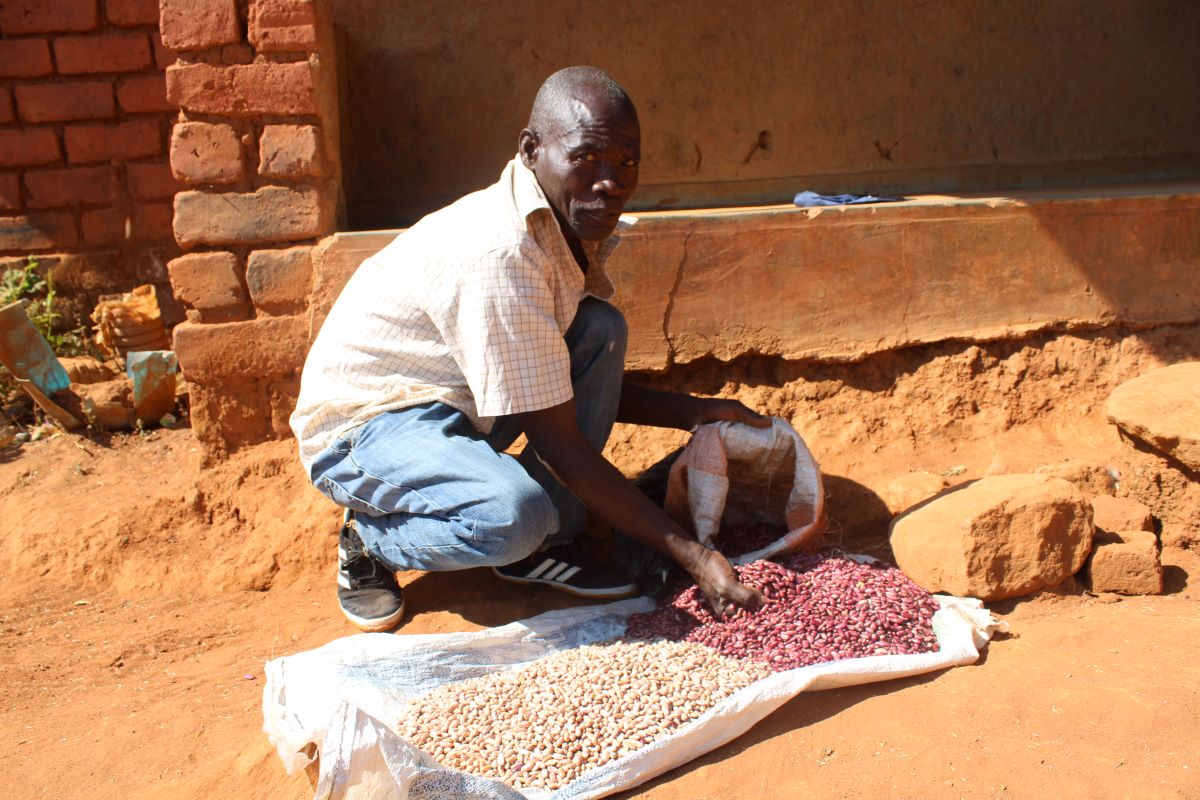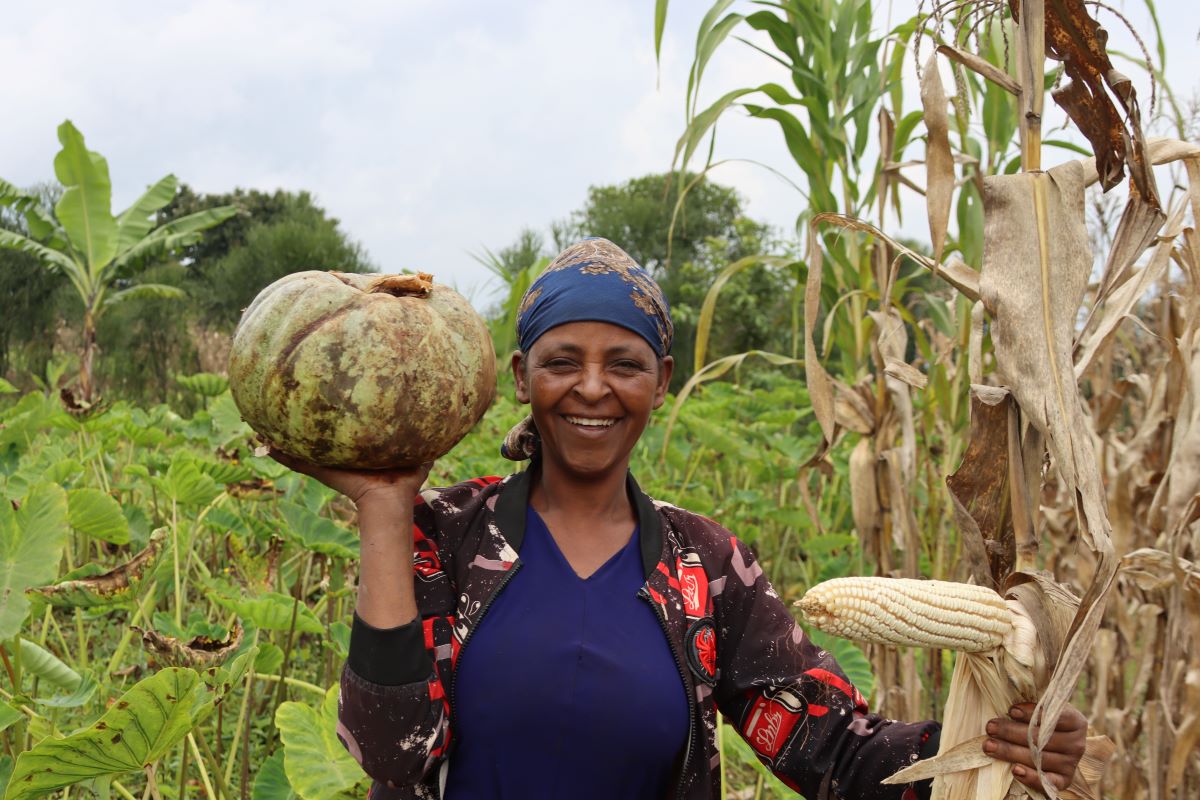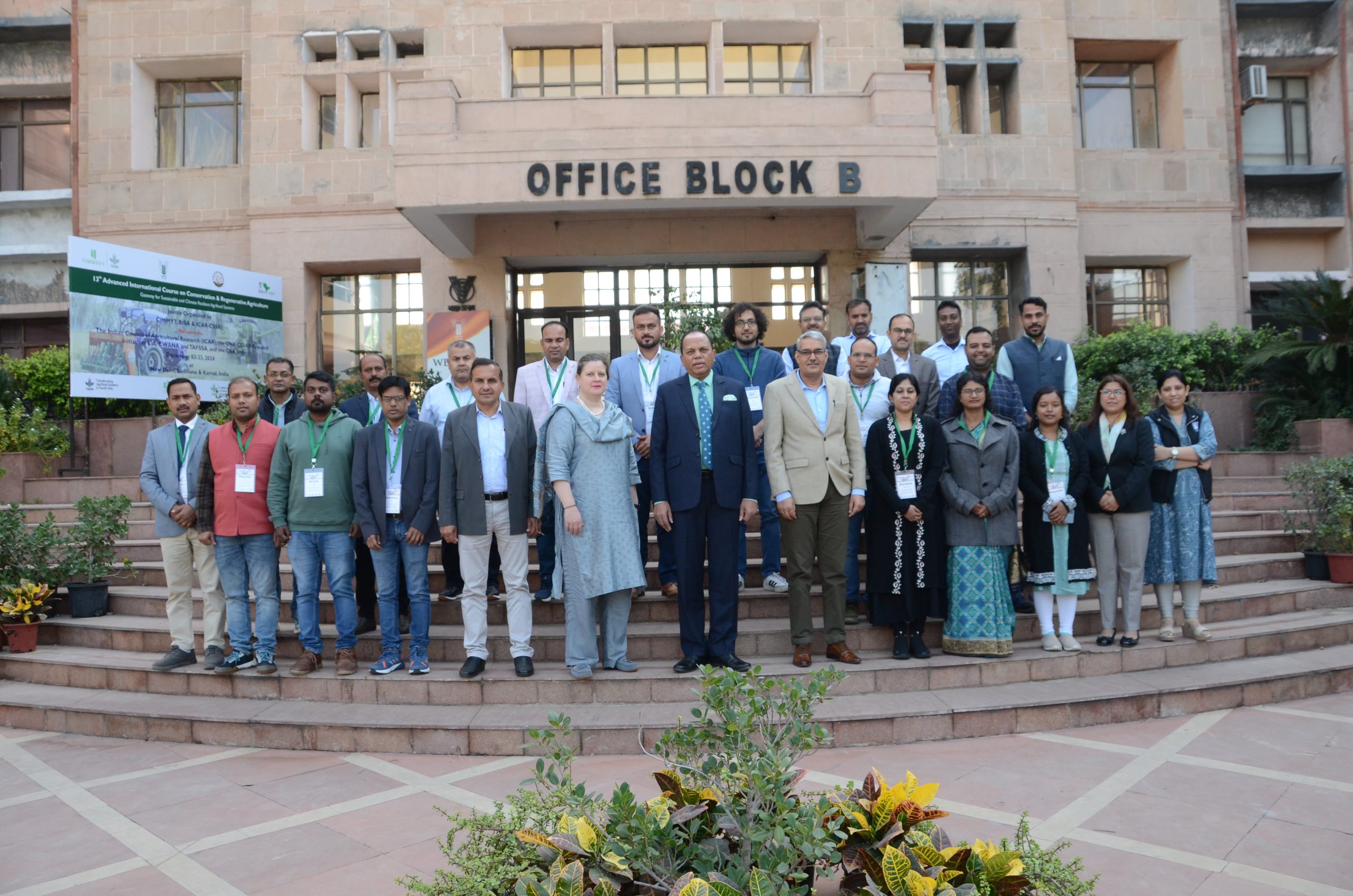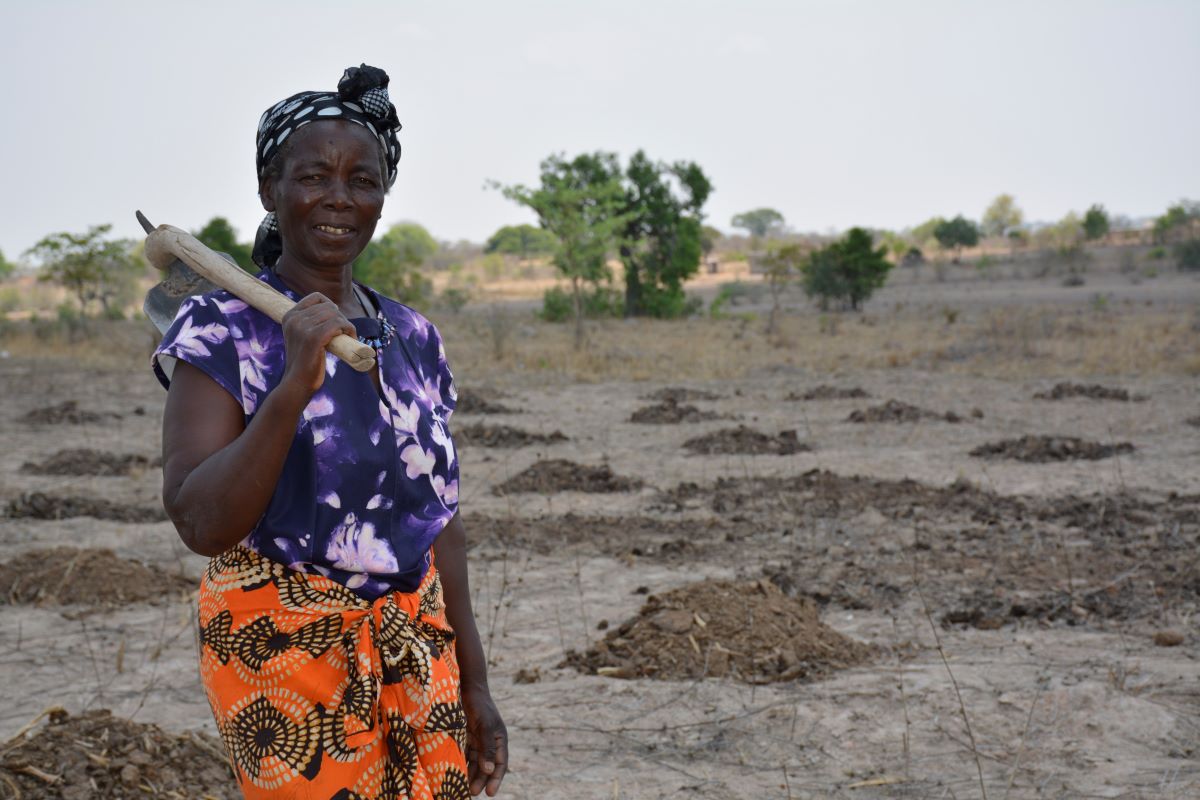Climate adaptation and mitigation
Climate change threatens to reduce global crop production, and poor people in tropical environments will be hit the hardest. More than 90% of CIMMYT’s work relates to climate change, helping farmers adapt to shocks while producing more food, and reduce emissions where possible. Innovations include new maize and wheat varieties that withstand drought, heat and pests; conservation agriculture; farming methods that save water and reduce the need for fertilizer; climate information services; and index-based insurance for farmers whose crops are damaged by bad weather. CIMMYT is an important contributor to the CGIAR Research Program on Climate Change, Agriculture and Food Security.
Scaling conservation agriculture: Victor Munakabanze’s journey from trials to transformative adoption
 Climate adaptation and mitigation
Climate adaptation and mitigation
Victor Munakabanze’s journey from trial plots to championing Conservation Agriculture in Zambia showcases how climate-smart innovations can transform livelihoods
Bridging borders: A South-South exchange between Ethiopia and Nepal to tackle soil health challenges
 Climate adaptation and mitigation
Climate adaptation and mitigation
CIMMYT facilitated a South-South exchange between Ethiopia and Nepal, fostering collaboration on innovative soil health solutions to enhance agricultural sustainability, climate resilience, and food security
Seeds of change: How QDS is transforming smallholder farming in Tanzania
 Climate adaptation and mitigation
Climate adaptation and mitigation
CIMMYT strengthens Tanzania’s seed systems by improving smallholder farmers’ access to high-quality seeds and sustainable livelihoods
Decades of research deliver drought-tolerant maize for a hotter, uncertain future
 Climate adaptation and mitigation
Climate adaptation and mitigation
Source: The Sunday News ()
CIMMYT’s drought-tolerant maize are empowering Zimbabwean farmers to withstand weather challenges
The International Wheat Yield Partnership (IWYP) announces new program director
 Climate adaptation and mitigation
Climate adaptation and mitigation
The International Wheat Yield Partnership (IWYP) and the Biotechnology and Biological Sciences Research Council (BBSRC) have appointed Dr. Jeff Rosichan as IWYP Program Director
Zimbabwean farmers face crop-munching armyworm after drought
 Climate adaptation and mitigation
Climate adaptation and mitigation
Source: Context ()
CIMMYT’s climate-smart solutions help Zimbabwean farmers combat fall armyworm and climate-driven crop losses
Minister warns of counterfeit seed risks as planting season looms
 Climate adaptation and mitigation
Climate adaptation and mitigation
Source: New Vision ()
CIMMYT recognized Dr. Godfrey Asea for developing drought-tolerant maize, reinforcing its commitment to climate-resilient agriculture in Uganda
Transforming Nigeria’s sorghum seed system with the FCMSS approach
 Climate adaptation and mitigation
Climate adaptation and mitigation
A seed revolution in Nigeria’s drylands is boosting yields and livelihoods through improved sorghum access
CIMMYT donates agricultural implements to Gwebi
 Capacity development
Capacity development
Source: The Herald ()
CIMMYT is modernizing breeding in Zimbabwe with machinery to enhance research and climate-resilient maize production
Time Running Out to Avert Food Catastrophe, but There Is Hope
 Climate adaptation and mitigation
Climate adaptation and mitigation
CIMMYT advances scientific innovations to boost crop productivity, resilience, and global food security
Advisory services boost bean farming in Malawi
 Climate adaptation and mitigation
Climate adaptation and mitigation
The AID-I program boosts bean farming in Malawi by connecting farmers to markets, improving yields and incomes, and enhancing resilience and food security
Bridging the seed gap in Kenya with standard certified seed
 Capacity development
Capacity development
Kenya’s Standard Certified Seed (SCS) initiative improves seed access, supports dryland crops, and strengthens climate-resilient agriculture through certification and capacity development
Scaling Conservation Agriculture-based Sustainable Intensification in Ethiopia (SCASI): Empowering Farmers and Engaging Development Partners
 Climate adaptation and mitigation
Climate adaptation and mitigation
CIMMYT is empowering Ethiopian farmers with sustainable practices that boost productivity, improve soil health, and build resilience to climate change
Advanced Training in Conservation Agriculture: Fostering Sustainable Agronomic Systems
 Capacity development
Capacity development
CIMMYT’s training on Conservation and Regenerative Agriculture empowered participants with climate-resilient farming practices to strengthen agrifood systems
Why early-stage on-farm sparse testing could be a game changer for crop breeding in Africa
 Climate adaptation and mitigation
Climate adaptation and mitigation
Early-stage on-farm testing tailors crop breeding to the realities of smallholder farmers, increasing efficiency and impact.
